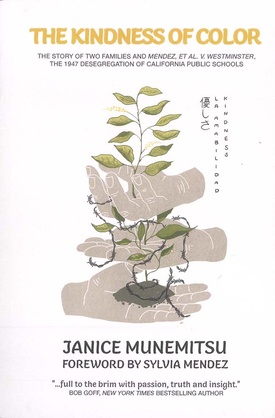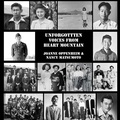In 1949, when I was 10 years old, my family moved from New Jersey to Goleta, Calif., where I enrolled as a sixth grader in Goleta Union School. It historically had always been an integrated school, as were the schools in the neighboring county seat of Santa Barbara. However, another Santa Barbara County town, Carpinteria, for some 27 years prior to 1947, had consigned its Mexican American students, mostly children of lemon workers, to the segregated classrooms of Aliso School. There, according to John D. McCafferty, a former Aliso School student and author of the 2003 book Aliso School: ‘For the Mexican Children,’ those attending the institution were given an inferior education and were smacked with a ruler by ill-prepared and racist Caucasian teachers for speaking Spanish, even on the playground, while the school itself was regarded as basically a feeder establishment for lemon industry laborers. This deplorable situation only came to an end in 1947 after the California Supreme Court prohibited public school segregation.
In The Kindness of Color, Sansei Janice Munemitsu provides readers with a poignant in-depth depiction of the Mendez, et al. v. Westminster class action suit in 1947 by five Mexican American families in then largely agricultural Orange County, Calif. Speaking up on behalf of some 5,000 people of Mexican ancestry in the four school districts of Westminster, Santa Ana, Garden Grove and El Modena, it was not only responsible for the ban on public school segregation in California but also established a precedent for the same ban to be enacted on the national level in the landmark 1954 U.S. Supreme Court case of Brown v. Board of Education.
However, at the heart of Munemitsu’s book — which she very timely has issued to commemorate the upcoming 75th anniversary in 2022 of the Mendez v. Westminster triumph — is the intertwined World War II and immediate postwar connection of the author’s Japanese American family and the Mendez family. Although I long ago knew about the importance of this far-reaching class-action suit, it was not until I viewed the 2003 public premiere of Sandra Robbie’s film Mendez vs. Westminster: For All the Children/Para Todos los Niños that I became aware of this familial connection. Far more surprisingly, it was not until the previous year that Munemitsu, who was born after World War II and came of age in the 1960s and 1970s, got wind of it in a surprise phone call from Robbie.
In brief, what Munemitsu, in her exceedingly well-written, exquisitely organized, and richly documented narrative relates so movingly is how her youthful father, Tad, through the intervention of an honest Garden Grove banker, entered into an arrangement whereby upon the 1942 U.S. government eviction of the Munemitsu family and its subsequent wartime incarceration in Arizona’s Poston Relocation Center, their 40-acre Westminster farm, replete with a farmhouse, four workers’ cottages, a packing house and a barn, was leased to the Mendez family. This arrangement led to a close wartime and postwar relationship between the Mendez and Munemitsu families. Moreover, the financial benefits accruing to the Mendez family from the lucrative harvest of its crops on the rented Munemitsu property both aided them to be the principal funding source in the costly Mendez vs. Westminster suit and permitted them to purchase a new café in the nearby city of Santa Ana.
What makes The Kindness of Color an especially timely book at this juncture when transformational ethnic studies courses are being mandated and debated in California and many other states is that while it embodies the essence of so-called critical race theory, it does so in a way that is altogether constructive, inoffensive, and promotional of the American democratic and multicultural promise.
I regret that this superb book by Munemitsu lacks an index, but likely that is due to the author's ardent desire to have it published in time to properly celebrate Mendez vs. Westminster's 75th anniversary. Hopefully, future editions of The Kindness of Color will rectify this particular deficiency.
THE KINDNESS OF COLOR: THE STORY OF TWO FAMILIES AND MENDEZ, ET AL. V. WESTMINSTER, THE 1947 DESEGREGATION OF CALIFORNIA PUBLIC SCHOOLS
By Janice Munemitsu
(Self-published, 2021, 211 pp., $14.99, paperback)
* This article was originally published in Nichi Bei Weekly on January 1, 2022.
© 2022 Arthur A. Hansen / Nichi Bei Weekly








